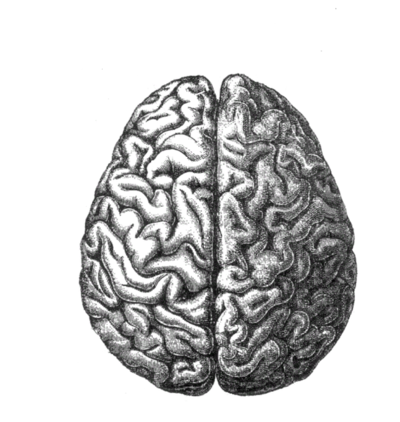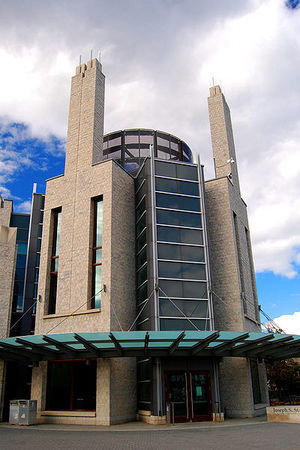



Lifelong Learning

Although daunting at times, this is also an opportunity to keep ourselves current and curiosity. Finding a way to continue to be curious about the complexity of medicine can keep things fresh.
"is the continuous building of skills and knowledge throughout the life of an individual. It is typically thought of as being voluntary and self-motivated. Lifelong learning encompasses both formal and non-formal types of education and training. Formal learning is the organized academic programs created for technical and professional training. Non-formal training describes the “lifelong process whereby individuals acquire attitudes, values, skills and knowledge from daily experience and the education influences and resources in his or her environment, from family and neighbours, from works and play, from the market place, the library and the mass media” [1]
Lifelong learning is necessary in any career that changes over time. With the constantly changing and evolving field of medicine, physicians must remain up-to-date with the latest knowledge within their field to provide cutting-edge care. As medical knowledge expands exponentially, physicians are becoming more and more sub-specialized. It is becoming increasingly important that physicians engaging in lifelong learning to maintain competence within their field.
The Four Pillars of Lifelong Learning
Lifelong learning can be described as a cyclic process with four key pillars as shown below[2]
Knowing the learner (Self awareness)
This focuses on understanding the learner’s prior knowledge, motivations and attitudes towards learning. The value system of the learner plays an important role in defining his/her identity. The identity of the learner is embedded into a socio-economic context, which will impact his or her commitment to learning at a particular moment in time.[2]
Planning for learning (Self management)
This refers to the setting of goals and the development of a plan to achieve these goals. Many different typologies of learners have been identified, depending on their underlying motivation. The typology includes social relationship, external expectations, social welfare, professional advancement, escape/stimulation and cognitive interest. Key decisions for self-planned learning projects include: deciding what knowledge or skill to learn, specific activities or methods for learning, setting specific deadlines or targets. [2]
Understanding how to learn (Meta-learning)
This describes the awareness that a learner has developed with respect to different approaches to learning and different learning styles. “Learning style” can be defined as “the complex manner in which, and conditions under which, learners most efficiently and most effectively perceive, process, store and recall what they are attempting to learn".[2]
Evaluating learning (Self monitoring)
This refers to a systematic analysis of all aspects of the learner’s performance. Depending on the goals set initially, the outcomes can be of qualitative, quantitative or affective nature.
The main feature of lifelong learning is the reflective nature of the entire cycle.
Why is this important?

Lifelong learning is self directed and the individual takes responsibility for their learning. In lifelong learning, learners reflect on their knowledge and learning experiences.
Lifelong learning in professional practice refers to: the systematic seeking, acquisition, renewal and upgrading of knowledge skills and attitudes required of specialists throughout their careers. Here the word practice refers to all of the following: clinical work, research, education, and administration. As professionals, physicians have an obligation to society to practice the best in these areas.
Why important to develop these skills in residency?
There is continuous CHANGE in medicine. One of the best qualities to develop in residency is flexibility. Residency is the ideal time to gain the skills needed to keep up. There is a shift in the physician education - physicians are required not to be just independent learners but be connected to colleagues and work toward practice enhancement. The skills of lifelong learning can be introduced during your residency!
Aspects of Lifelong Learning
1. Management of Learning in Practice
How do busy physicians manage learning in practice? Maintenance of competence is important to high quality care and the societal expectation that physicians show evidence of keeping current. It is a priority that competes with other issues in practice. To remain current, physicians need to be skilled in information literacy.Information literacy includes effective learning strategies, selection of journals, websites to access and selecting what to read in depth. [3]
2. Knowing your practice
Creating a practice profile can help you develop a lifelong learning strategy. Residents need to know how to develop a CPD plan linked to their specific roles, responsibilities an priorities. Residents should be able to identify learning opportunities and priorities.
3. Scanning activities
With so much information how to keep informed, keep up with the literature? There is a sea of printed and electronic information, and you may feel like you might just drown in it!
Everyone has different approaches to articles. One example is to scan the date of publication and the source, then read the abstract. Some readers concentrate on the introduction and conclusions. For critical appraisal, the methods section might be the most important. The references at the end of the article can often be interesting related reading as well.
Some more tips for reading the literature:
Use online journals, RSS feeds
Attend rounds and conferences
Raise questions in practice
Use point-of-care reading
Participate in group learning
Create a community of learners (you probably already have one, this is valuable!)
4. Learning from Questions
It is much easier to find the answers when you know the questions! Uncertainty is certain in medicine, and is fundamental to ongoing learning. Well-formulated questions will yield more useful and relevant answers. Asking relevant questions is key to incorporating learning into practice. An attitude of curiosity will promote inquiry and lifelong learning.
See: The PICO model of asking questions.
5. Practice Assessment and Enhancement
_________________________________
1. Conner M. Intoducing Informal Learning. marciaconner.com/intros/informal.html
2. Stauble B. Using concept maps to develop lifelong learning skills: A case study. Teaching and Learning Forum 2005. Curtin University of Technology, Sarawak Campus. otl.curtin.edu.au/tlf/tlf2005/refereed/stauble.html, accessed: October 1, 2011. from Merriam, S.B. & Caffarella, R.S. (1999). Learning in Adulthood: A Comprehensive Guide. San Francisco: Jossey-Bass Publishers.
3. Teunissen PW, Dornan T. Lifelong learning at work: BMJ. 2008;336(7645):667-9.
 Previous
Previous

